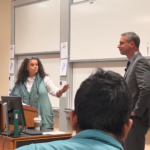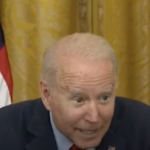Court Protects LOLs
PHILADELPHIA, Penn.—A federal appeals court has ruled that a school district violated the First Amendment rights of a student when it punished Justin Layshock for speech posted on a social networking website, holding that this off-campus speech was beyond the power of the school to control. Agreeing with an amicus brief filed by The Rutherford Institute in Layshock v. The Hermitage School Dist., the U.S. Court of Appeals for the Third Circuit ruled that the school district’s attempt to control off-campus expression merely because a student is involved is contrary to the U.S. Constitution. “It would be an unseemly and dangerous precedent to allow the state, in the guise of school authorities, to reach into a child’s home and control his/her actions there to the same extent that it can control that child when he/she participates in school sponsored activities,” the court wrote in its majority opinion.
The court’s opinion and The Rutherford Institute’s amicus brief in Layshock v. The Hermitage School Dist. are available here and here, respectively.
“This is not only a victory for free speech, it is also a victory for the right of privacy,” said John W. Whitehead, president of The Rutherford Institute. “The state has no business monitoring and/or punishing students for off-campus speech.”
In December 2005, Justin Layshock, then a senior at Hickory High School, created a parody profile of a school teacher and posted it on “MySpace.” Layshock did all the work on the profile during non-school hours and using a computer that was at his grandmother’s house. He obtained a picture of the teacher from the school’s website and posted it on the profile along with answers to personal questions which were unflattering to the teacher. After the teacher and school administrators became aware of the parody profile and linked it to Layshock, he and his mother were called into the school and Layshock admitted producing the profile. Although his parents immediately disciplined Layshock, the school also initiated disciplinary proceedings against him and eventually imposed a 10-day, out-of-school suspension, forced him into a segregated alternative school program for the remainder of the school year, banned him from all extracurricular activities, and prohibited him from participating in graduation.
Before the end of the school year, Layshock’s parents brought an action in federal court against the school alleging that its punishment violated Layshock’s First Amendment rights. Affirming the district court’s ruling that the school’s punishment was unconstitutional, the Court of Appeals stressed that students retain their rights to freedom of expression even while on the school campus and that such rights clearly inhere to activities that take place off-campus, such as those engaged in by Layshock. Although student speech might be punished if it creates or will likely create a substantial disruption of the school environment, there was insufficient proof that Layshock’s off-campus expression was actually or potentially disruptive. The court also ruled that the school could not impose punishment for the speech simply because it “reached inside” the school and that there must be a more substantial impact upon the school environment in order for schools to have the power to regulate out-of-school student speech.
Nisha N. Mohammed is the press contact for the Rutherford Institute, a nonprofit legal and educational civil liberties organization which provides legal assistance at no charge to individuals whose constitutional rights have been threatened or violated.
If you would like to comment on this article, e-mail contact@academia.org




